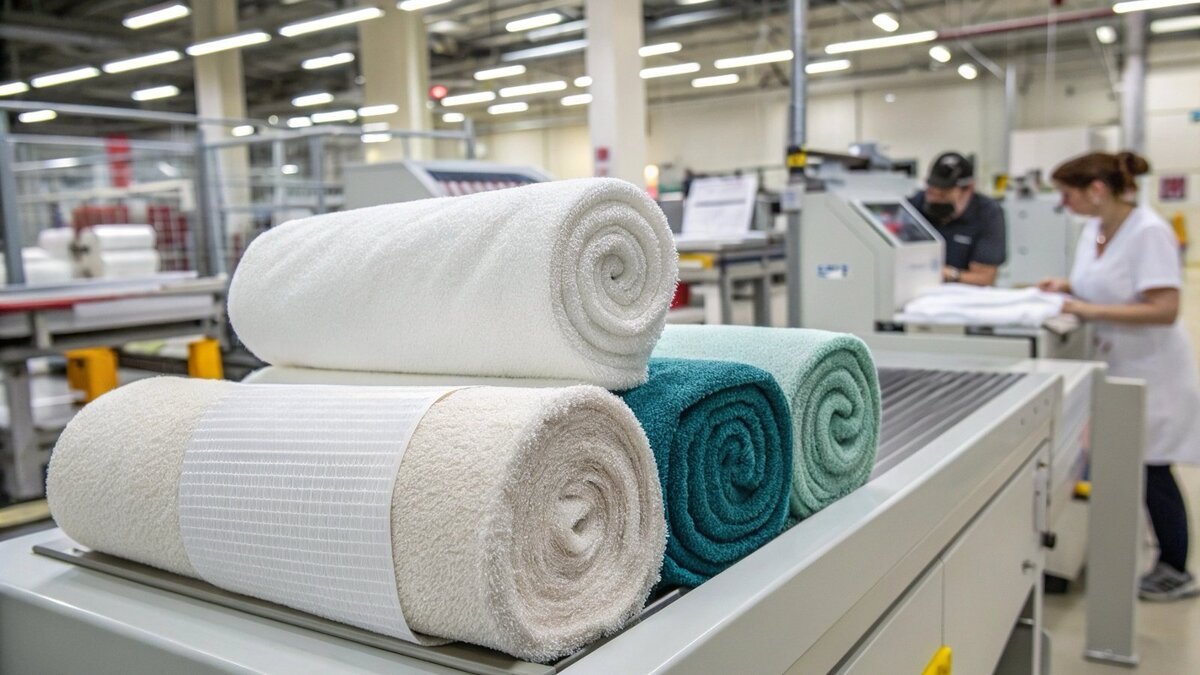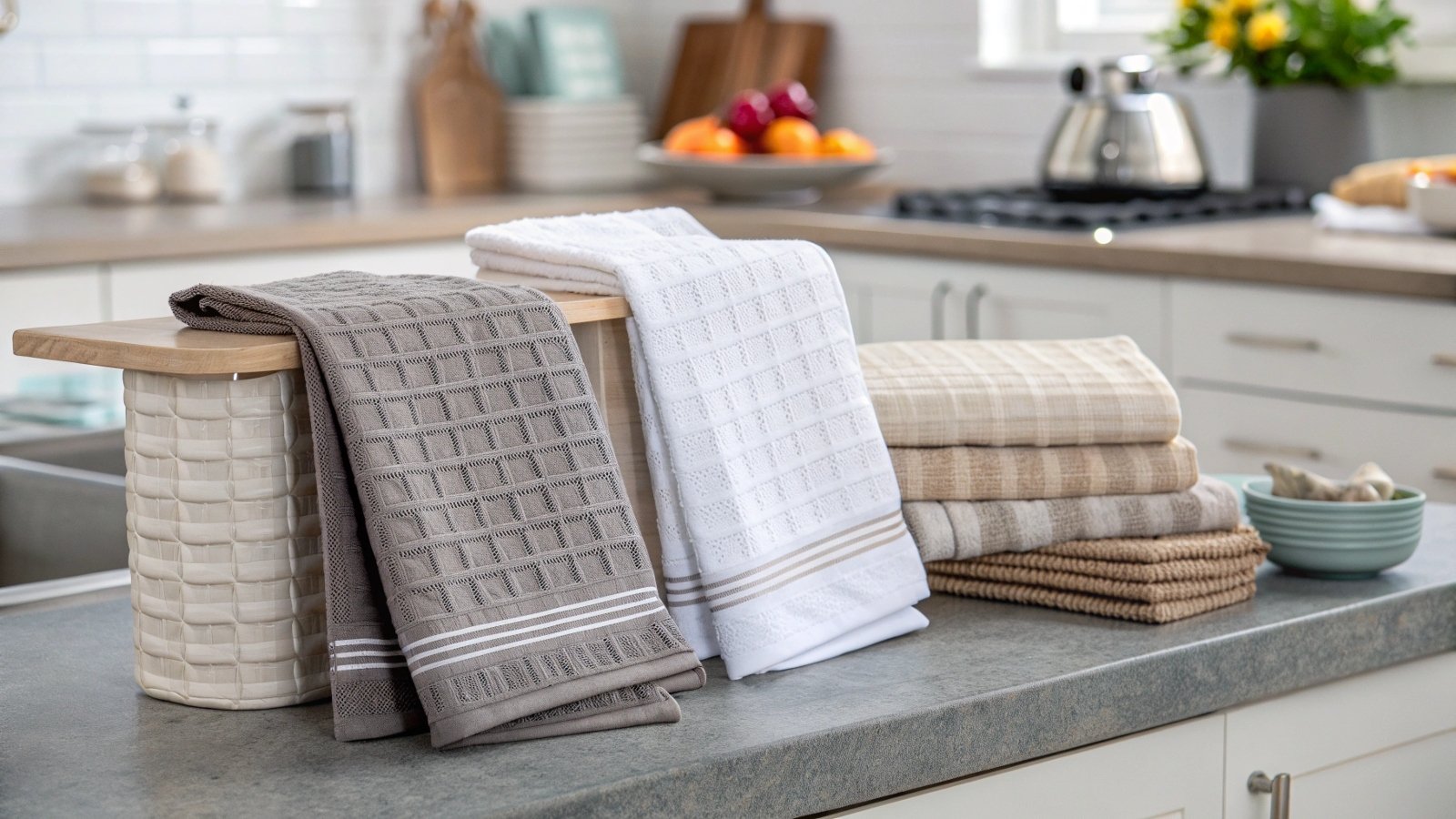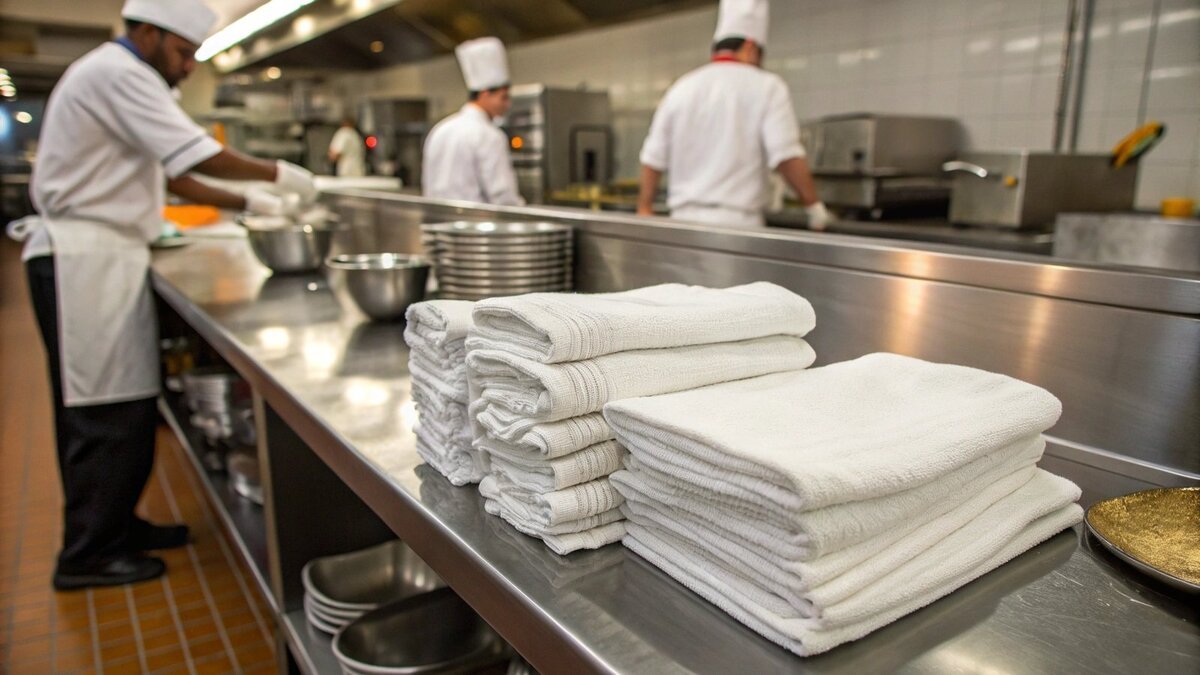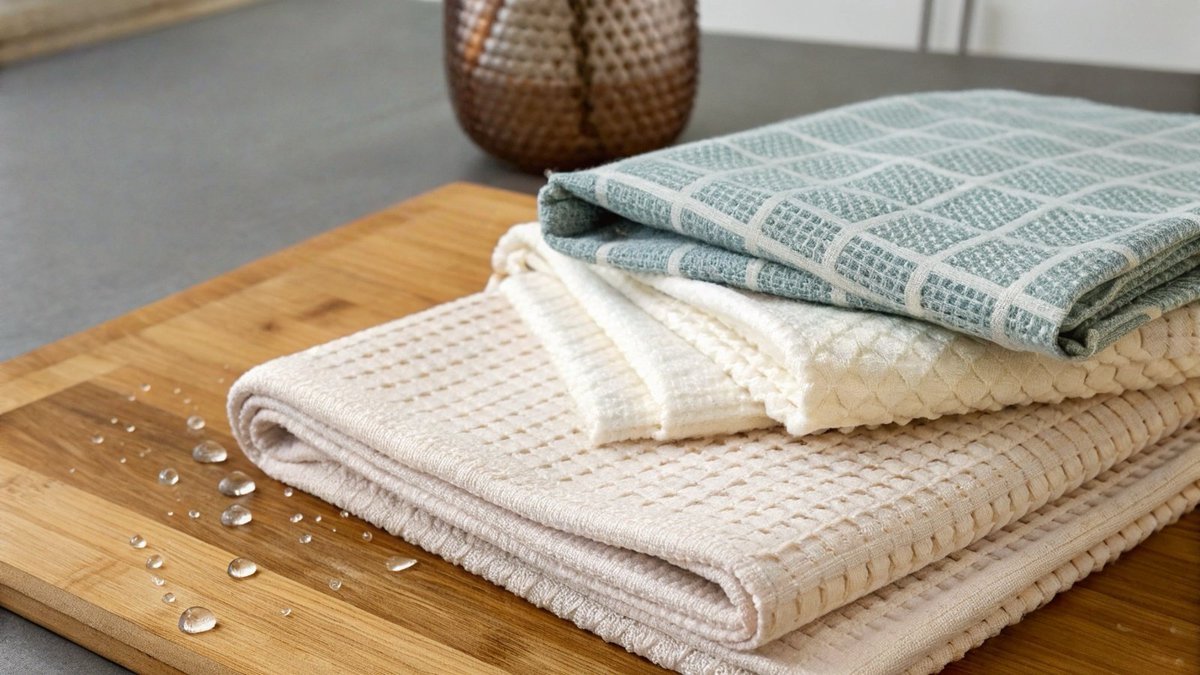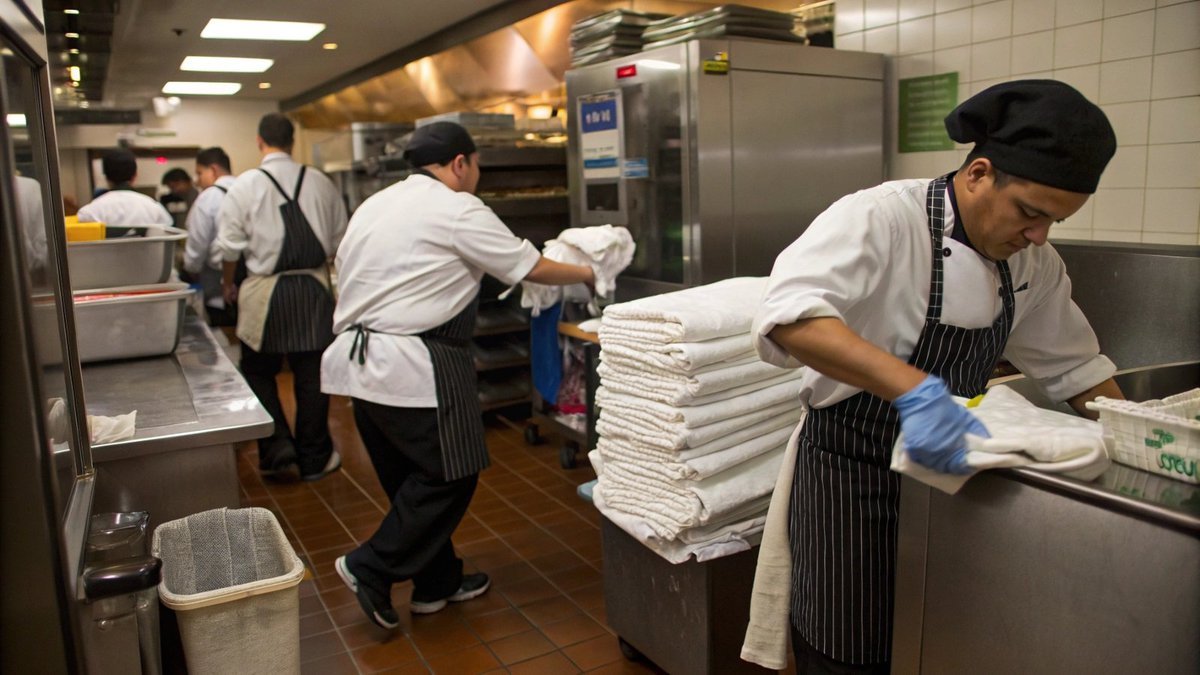Struggling to find a supplier for professional-grade kitchen towels? You’re likely facing inconsistent quality and high order minimums. Let’s find you a partner who delivers what professional kitchens actually need.
To find a professional kitchen towel manufacturer, you should look for specialists in hospitality textiles with certifications like OEKO-TEX. Prioritize partners who offer low minimum order quantities (MOQs) for testing and have proven experience producing durable, highly absorbent, and lint-free cotton towels.
Finding the right manufacturing partner can feel like searching for a needle in a haystack. The market is flooded with suppliers, but very few truly understand the demands of a professional environment. It’s about more than just finding someone who can make a towel; it’s about finding a partner who gets the details right.
But it doesn’t have to be so complicated. Let’s break down what separates a professional towel from a standard one, and what questions you need to ask to find a manufacturer who can deliver. It all starts with knowing what the pros look for.
Who makes the best kitchen towels?
You see "best" advertised everywhere, but the quality rarely lives up to the hype. This leads to frustration and towels that fall apart. Let’s define what "best" really means.
The "best" kitchen towels come from manufacturers who focus on function over fashion. They use durable, highly absorbent, and lint-free materials, hold certifications like OEKO-TEX, and understand the need for robust weaves. The best partner delivers this quality, order after order.
In my years in the textile industry, I’ve seen countless brands claim they make the "best" towels. But the real leaders aren’t just selling a product; they are providing a reliable tool. The best manufacturer for your brand is one whose definition of quality aligns with the practical needs of a busy kitchen. They prioritize performance and safety above all else. This means focusing on the fundamentals of fabric, weave, and construction. A fancy logo means nothing if the towel can’t handle the heat, absorb a spill, or survive hundreds of wash cycles. True quality is built into the towel from the very first thread, and it shows in its performance day after day.
What Defines a Top-Tier Manufacturer
A top-tier manufacturer is transparent about their process and materials. They should be able to provide documentation for their certifications, like OEKO-TEX for safety or GRS for recycled content.
Manufacturer Quality Comparison
| Feature | Pro-Grade Manufacturer | Standard Retail Supplier |
|---|---|---|
| Material Focus | Performance Cotton, Lint-Free | Decorative, Polyester Blends |
| Certifications | OEKO-TEX, BSCI, GRS | Often uncertified |
| Durability | Reinforced stitching, high GSM | Lower stitch count, pills easily |
| Consistency | Strict color & quality control | Varies between batches |
What towels do they use in professional kitchens?
Ever wonder how professional kitchens stay so clean and efficient? Using the wrong towel creates lint, doesn’t absorb well, and can even be a safety hazard. The secret is the specific towel they use.
Professional kitchens almost exclusively use flat-weave, lint-free cotton towels, often called flour sack towels or bar mops. They are chosen for high absorbency, durability through constant washing, and versatility for handling hot pans or drying glassware without leaving fibers behind.
I once worked with a chef who was launching his own line of kitchen goods. He was insistent that the towels we sourced had to be "the boring kind." What he meant was they needed to be functional workhorses, not decorative pieces you’re afraid to get dirty. That’s the core philosophy in a professional setting. The towels used in these high-pressure environments are tools, plain and simple. They don’t have fluffy loops that can snag on equipment or leave lint on a plate. Instead, they feature a tight, flat weave that makes them incredibly versatile. This focus on pure function is what we help our clients capture when they want to create a truly professional-grade product for their customers.
The Workhorse: Flour Sack Towels
These are the unsung heroes. They are thin, lightweight, and incredibly absorbent. Because they have no pile, they are perfect for proofing dough, drying delicate herbs, or getting a streak-free shine on glassware.
The All-Rounder: Cotton Bar Mops
Slightly thicker than flour sacks, bar mops often have a ribbed texture. They are extremely durable and made for soaking up spills, wiping down counters, and general cleaning tasks. They are built to be washed and bleached repeatedly.
What is the best fabric for kitchen towels?
Your kitchen towels just push water around instead of absorbing it. This is frustrating and leaves a bigger mess. The solution lies in choosing the right fabric from the start.
Cotton is the best fabric for kitchen towels because of its incredible absorbency; it can hold up to 27 times its weight in water. For best results, look for specific weaves like waffle or basketweave, which increase surface area for even better absorption and durability.
It’s a fact I often share with clients looking to develop a towel line: a well-made cotton towel isn’t just a piece of cloth, it’s a high-performance sponge. The natural structure of the cotton fiber is hydrophilic, meaning it loves water. This is why it so easily pulls liquid in, rather than pushing it around like many synthetic fibers do. But the fiber itself is only half the story. The way those fibers are woven together makes a huge difference in performance. A great manufacturer understands how to combine the right material with the right structure to create a towel that not only absorbs but also lasts. We guide our partners through these choices to ensure the final product meets their exact performance needs.
Why Cotton Reigns Supreme
Cotton’s natural fibers are hollow, which allows them to soak up a large volume of liquid. It’s also breathable, which helps it dry relatively quickly and reduces the chance of mildew.
Weave Matters: Beyond the Fiber
| Weave Type | Key Benefit | Best Use Case |
|---|---|---|
| Flat Weave / Flour Sack | Lint-free, quick-drying | Polishing glass, handling food |
| Waffle Weave | High absorbency, textured grip | Drying hands, soaking up spills |
| Basketweave | Durable, highly absorbent | General purpose cleaning, wiping |
| Terrycloth | Very absorbent, but can lint | Best for drying hands, not surfaces |
Where do chefs keep their towels?
Misplacing your kitchen towel is annoying. In a pro kitchen, it’s a workflow and hygiene disaster. So where do they keep them? Chefs have simple systems to keep towels handy.
Chefs typically keep a clean, folded towel tucked into their apron strings for immediate use on hands or hot pans. For sanitation, extra towels are stored in a designated clean area, and some kitchens even keep damp towels in the refrigerator for hygiene and accessibility.
I remember a hotel procurement manager asking me why their kitchen staff was going through so many towels each shift. After a quick chat, we realized they had no system. Towels were used for everything and left anywhere. Once they implemented a simple "one-for-hands, one-for-surfaces" rule with a central clean storage spot, their usage became much more efficient and hygienic. It’s a small detail, but it has a huge impact on workflow and safety. The refrigerator trick is another pro move. Storing damp, clean towels in the fridge keeps them cool, which slows bacterial growth, and ensures a chef always has a cool cloth ready for wiping down a plate or handling delicate ingredients.
The Apron Tuck: Always Ready
This is the most common method. Tucking a towel into the apron strings keeps it within arm’s reach at all times. This is usually a "personal" towel, used for wiping hands or handling hot equipment, not for cleaning surfaces, which helps prevent cross-contamination.
The Fridge Hack: A Pro Move
Keeping a small stack of clean, damp towels in a sanitary container in the fridge is a classic chef technique. The cold temperature keeps them fresh and hygienic. They are perfect for a final, clean wipe of a plate before it goes out to a customer.
Conclusion
To find a professional manufacturer, focus on partners specializing in functional, lint-free cotton towels. The right supplier understands absorbency, durability, and the real-world needs of a demanding kitchen environment.

